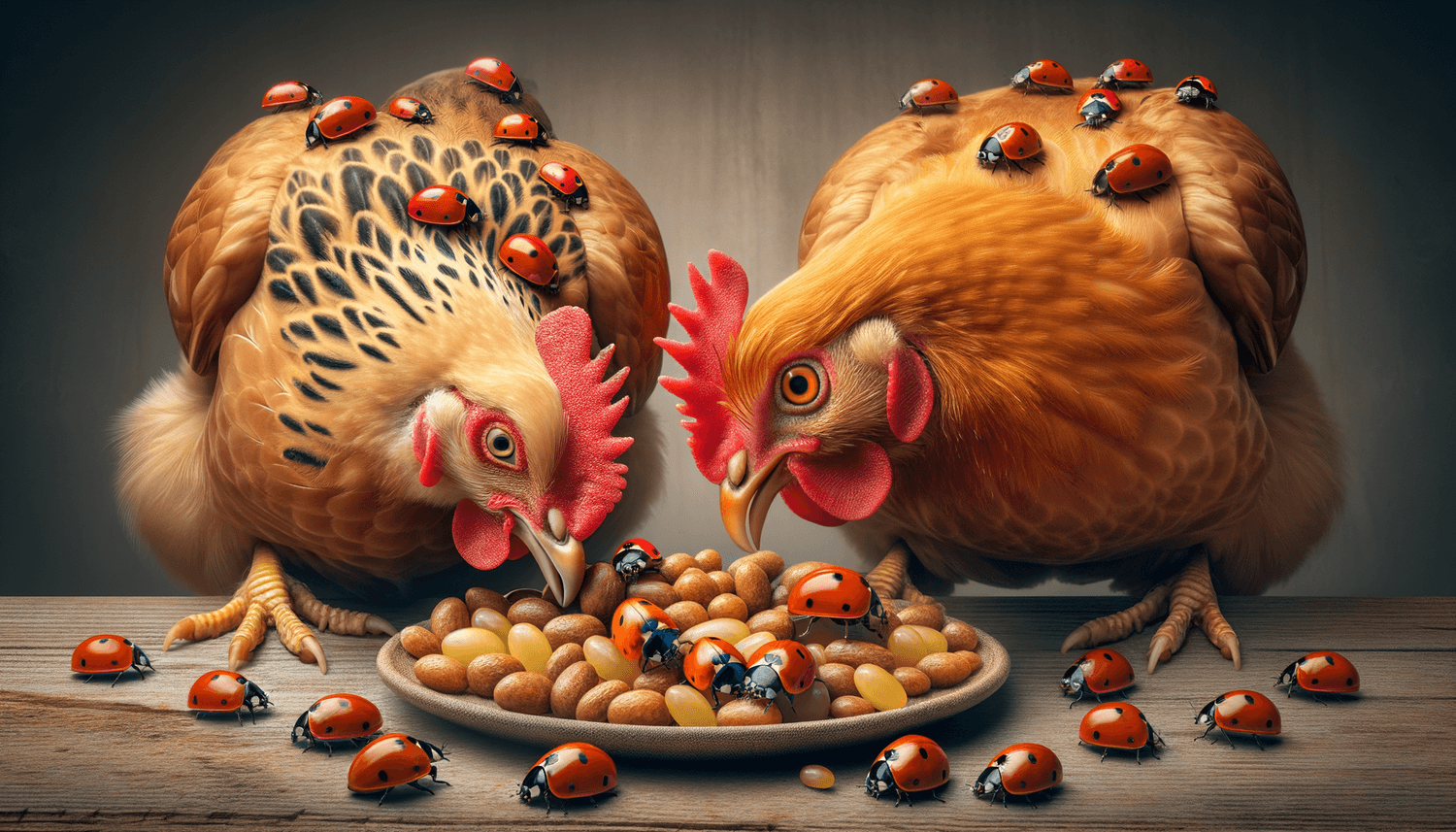Yes, chickens can eat ladybugs. While not a common food source for poultry, ladybugs are not toxic and can serve as a protein-rich snack. However, feeding chickens a significant number of ladybugs is not recommended, as they can be difficult to digest in large quantities and some species may have defense mechanisms that can irritate a chicken’s digestive tract.
Quick Summary
- Chickens can eat ladybugs.
- Ladybugs are protein-rich but should not be a primary food source.
- The risks include potential digestive irritants from certain ladybug species.
- Feeding ladybugs to chickens should be occasional and not in large quantities.
Overview of Ladybugs
Ladybugs, known scientifically as Coccinellidae, are small beetles with distinct, colorful patterns. They are often appreciated for their role as beneficial insects in gardens, consuming aphids and other pests. Nutritional content wise, they are high in protein, like many insects, which can be a good supplement in a chicken’s diet.
Benefits and Risks of Ladybugs for Chickens
Feeding ladybugs to chickens can offer a natural, protein-rich snack. However, the potential risks include the presence of defensive chemicals that certain species of ladybugs excrete, which can make them less palatable and potentially irritating to chickens. Additionally, ladybugs should not become a staple in their diet due to their hard exoskeletons, which can be difficult for chickens to digest in large amounts.
Feeding Guidelines
When feeding ladybugs to chickens, it should be done sparingly. Ensure that the ladybugs have not been exposed to pesticides, which could be harmful to your chickens. If ladybugs are naturally present in your yard, chickens can naturally forage for them. No intentional supplementation with ladybugs is necessary.
Alternatives
If considering alternatives to ladybugs for supplementing a chicken’s diet with insects, mealworms and crickets can be better options. They are more commonly used as chicken treats and do not have the potential risks that come with ladybugs. They are also more readily available from feed stores and pet shops geared towards poultry owners.
Expert Opinions
Experts such as poultry nutritionists and veterinarians agree that while chickens can safely ingest ladybugs, they should be consumed in moderation. Studies on poultry diet diversification suggest that including a variety of protein sources can be beneficial for chickens, but care should be taken to introduce new foods slowly and in small quantities to monitor any adverse reactions.
Frequently Asked Questions
Having delved into whether chickens can eat ladybugs, there are several common questions that may arise. Below are answers to some frequently asked questions based on the content of this blog post.
Are ladybugs harmful to chickens?
Ladybugs are generally not harmful to chickens if consumed in small numbers. However, some species secrete chemicals as a defense mechanism, which might be distasteful or irritating to chickens. Thus, ladybugs should only be a minor part of a chicken’s diet.
How often can chickens eat ladybugs?
Chickens can eat ladybugs occasionally, but they should not be a regular part of their diet. Ladybugs should not be provided in large numbers, and chickens should be observed for any adverse reactions after consuming them.
What are some safe insect alternatives for chicken treats?
Safe insect alternatives for chicken treats include mealworms, crickets, and earthworms. These insects are more widely accepted as poultry feed and are easier for chickens to digest compared to ladybugs. Additionally, they are a safer option with a reduced risk of dietary complications.

















